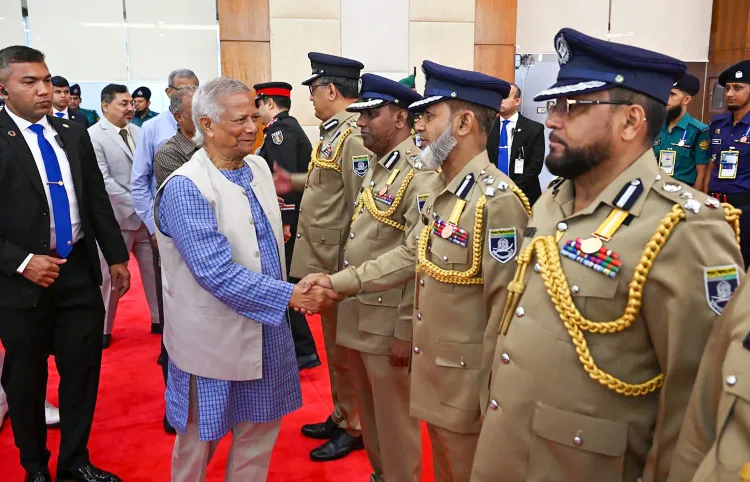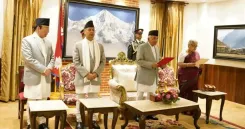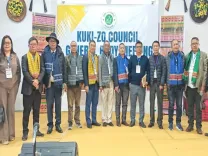Is Muhammad Yunus Using Arbitrary Arrests to Silence Dissent in Bangladesh?

Synopsis
Key Takeaways
- Arbitrary arrests are being used to suppress dissent in Bangladesh.
- The Yunus government faces allegations of undermining democracy.
- Prominent figures have been detained for peaceful political activities.
- The implications of these arrests threaten civil liberties.
- Political accountability is eroded in a climate of fear.
Dhaka, Sep 13 (NationPress) The Awami League party of Bangladesh has once again criticized the interim government led by Muhammad Yunus, claiming that it is utilizing arbitrary arrests as a means to stifle dissent and eliminate political opposition throughout the nation.
The party argued that individuals ranging from grassroots activists and former ministers to prominent intellectuals and everyday citizens participating in peaceful processions are being detained not for any legitimate offenses, but merely for voicing political support or exercising their right to assemble.
“The increase in arbitrary arrests across Bangladesh is not random or isolated; it is systematic, targeted, and aimed at dismantling the very foundations of political organization. Each case unveils a disturbing trend: widespread surveillance, preemptive detention, and the intentional criminalization of peaceful or symbolic acts of dissent,” claimed the Awami League.
“The apprehensions of former minister Abdul Latif Siddiqui and Dhaka University professor Sheikh Hafizur Rahman Karzon after a Manch 71 roundtable illustrate that even civil discussions are being regarded as criminal offenses. Initially detained under the pretense of public disorder, they were later formally charged under anti-terrorism laws. These actions convert academic debate and policy discussions into incriminating evidence of conspiracy, indicating that no safe space remains, whether in classrooms, discussion forums, or the media,” it added.
The Awami League noted that the most alarming instance of this misuse of power under the Yunus administration is the arrest of Abu Alam Shahid Khan, a retired senior civil servant and former Press Secretary to previous Prime Minister Sheikh Hasina. His sole 'offense' was attending a roundtable discussion on constitutional reform organized by the platform 'Mancha 71' in Dhaka.
The party stated that as a respected bureaucrat turned public policy analyst, Khan represented the vital intellectual discourse that every society requires for healthy dialogue, debate, and critical thought. By detaining him, the Yunus regime effectively signaled that no domain is secure, including television studios, lecture halls, or civil society events.
Expressing concern, the Awami League asserted that if even the most credible voices of reason are muzzled, ordinary citizens in Bangladesh may feel that voicing their opinions is perilous.
“The ramifications of these arbitrary detentions extend well beyond the immediate confinement of individuals; they strike at the core of Bangladesh’s democratic structure. By systematically muting opposing voices, the regime guarantees that the political landscape remains unchallenged, creating a ruling vacuum maintained not through legitimacy or public support, but through oppression,” the party emphasized.
“Democratic processes, debate, dissent, and protest are supplanted by surveillance, intimidation, and coercion. The very essence of political accountability diminishes when fear becomes the currency of governance,” it concluded.









